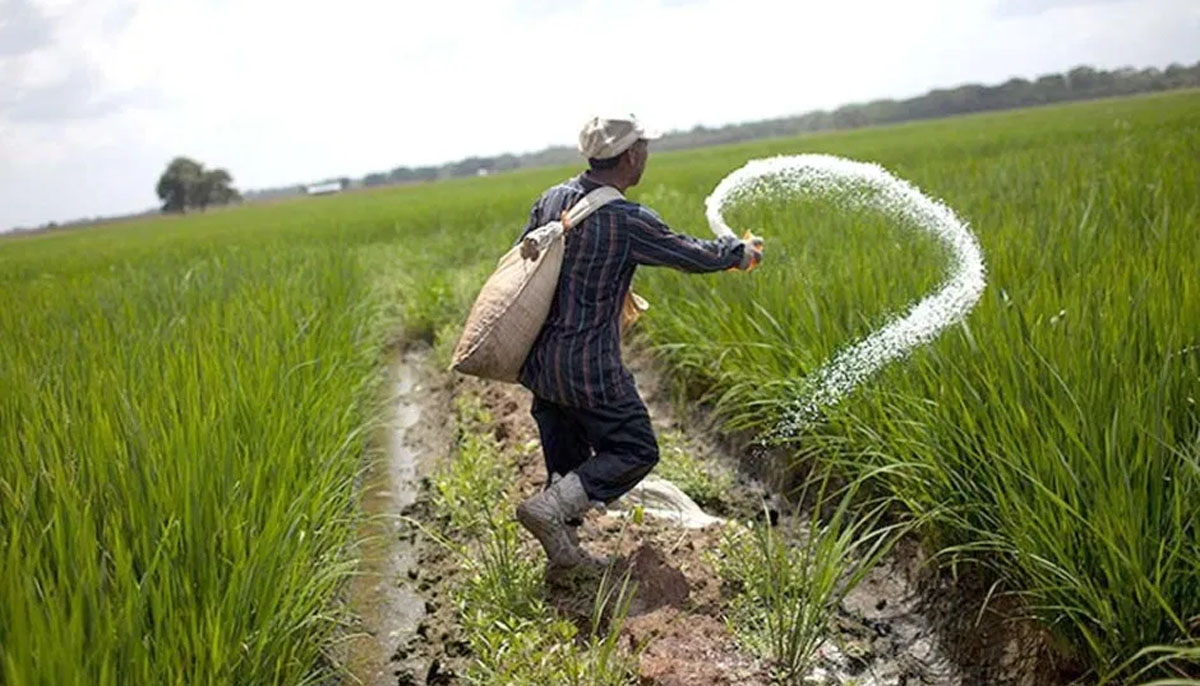Fertiliser sector getting untargeted subsidies of Rs148 billion
ISLAMABAD: The fertilizer sector has been obtaining untargeted subsidies/concessions to the tune of Rs148 billion during the current fiscal year, leaving no other option before the government but to abandon this untargeted mechanism.
After cash bleeding power sector, the fertilizer sector is the second in the list where subsidies/concession of major chunk are being provided at the cost of national exchequer and on the name of farmers but its irony that billions of rupees are being utilised without placing any targeted mechanism. Out of total subsidy/concession of Rs148 billion provided to fertilizer sector every year, the government documents showed only Rs6 billion subsidy provided to two plants only through budget documents.
With approval of Prime Minister Imran Khan, Ministry of Finance has established and notified Subsidies Cell under supervision of Dr Waqar Masood and this high-powered Cell had already become operational.
Official documents and background interviews with top official of government confirmed to The News on Thursday that the fertilizer sector was getting cross feed subsidy to the tune of Rs62 billion as it is the biggest head of the subsidy amount in the current fiscal year. It is untargeted subsidy being provided to the fertilizer sector.
The second major concession being enjoyed by powerful fertilizer sector is in shape of reduced GST rate as standard GST rate stands at 17 percent but the fertilizer sector is paying special rate of 2 percent only. The reduced GST rate from 17 to 2 percent has been causing heavy revenue losses to the tune of Rs35 billion on per annum basis.
Thirdly, the reduced rate of GIDC has been causing revenue loss to the tune of Rs45 billion as again this concession is meant without any targeted mechanism. The ECC had granted approval for operation of two plants (Engro and Fatima Fertilizer) with provision of direct subsidy to the tune of Rs6 billion on per annum basis.
The incumbent government has been contemplating upon different options to do away this untargeted fertilizer sector subsidies/concessions and first option under consideration is ensure direct transfer of subsidy to farmers after developing data base. The second option is to deregulate the fertilizer sector by allowing import and export and the government will only be responsible to ensure strategic reserves so that it could intervene into market if some elements tried to distort the market mechanism.
Third option will be withdrawal of concession on GST and subsidized supply of gas but the problem will arise related to GIDC that is subjudice matter before the courts. The government has placed another set of restructuring plan before the Subsidy Cell as they are considering for introducing price regulatory framework in order to regulate the pricing mechanism. In such scenario, the existing concessions and subsidies would be kept intact.
There is also need revision of fertilizer policy 2001 by shifting focus from domestic fertilizer production to ensure transfer of benefit to the agriculture sector. The untargeted subsidies and concession cannot be tackled without placing competitive fertilizer sector then the targeted subsidies could be placed. Second option, this sector requires regulator and market forces protect rights of every stakeholders.
-
 Jessica Alba, Cash Warren Finalize Divorce After 16 Years Of Marriage
Jessica Alba, Cash Warren Finalize Divorce After 16 Years Of Marriage -
 China’s AI Boom Takes Center Stage At Spring Festival One Year After DeepSeek Stirred The Industry
China’s AI Boom Takes Center Stage At Spring Festival One Year After DeepSeek Stirred The Industry -
 James Van Der Beek Called His Sixth Child Jeremiah 'healing For Us' Before His Death
James Van Der Beek Called His Sixth Child Jeremiah 'healing For Us' Before His Death -
 Elon Musk Vs Reid Hoffman: Epstein Files Fuel Public Spat Between Tech Billionaires
Elon Musk Vs Reid Hoffman: Epstein Files Fuel Public Spat Between Tech Billionaires -
 Gordon Ramsay Denies Victoria Beckham Got Handsy With Brooklyn At His Wedding
Gordon Ramsay Denies Victoria Beckham Got Handsy With Brooklyn At His Wedding -
 Gordon Ramsay Makes Unexpected Plea To Brooklyn As He Addresses Beckham Family Feud
Gordon Ramsay Makes Unexpected Plea To Brooklyn As He Addresses Beckham Family Feud -
 Prince Harry Warns Meghan Markle To 'step Back'
Prince Harry Warns Meghan Markle To 'step Back' -
 Selena Gomez Explains Why She Thought Lupus Was 'life-or-death'
Selena Gomez Explains Why She Thought Lupus Was 'life-or-death' -
 New Zealand Flood Crisis: State Of Emergency Declared As North Island Braces For More Storms
New Zealand Flood Crisis: State Of Emergency Declared As North Island Braces For More Storms -
 Nancy Guthrie Case: Mystery Deepens As Unknown DNA Found At Property
Nancy Guthrie Case: Mystery Deepens As Unknown DNA Found At Property -
 James Van Der Beek's Brother Breaks Silence On Actor's Tragic Death
James Van Der Beek's Brother Breaks Silence On Actor's Tragic Death -
 Megan Thee Stallion On New Romance With Klay Thompson: 'I'm Comfy'
Megan Thee Stallion On New Romance With Klay Thompson: 'I'm Comfy' -
 Nicole Kidman Celebrates Galentine’s Day Months After Keith Urban Split
Nicole Kidman Celebrates Galentine’s Day Months After Keith Urban Split -
 Justin Bieber Unveils Hailey Bieber As First Face Of SKYLRK In Intimate Campaign Debut
Justin Bieber Unveils Hailey Bieber As First Face Of SKYLRK In Intimate Campaign Debut -
 Caitlin O’Connor Says Fiance Joe Manganiello Has Changed Valentine’s Day For Her
Caitlin O’Connor Says Fiance Joe Manganiello Has Changed Valentine’s Day For Her -
 Rachel Zoe Sends Out Message For Womne With Her Post-divorce Diamond Ring
Rachel Zoe Sends Out Message For Womne With Her Post-divorce Diamond Ring




